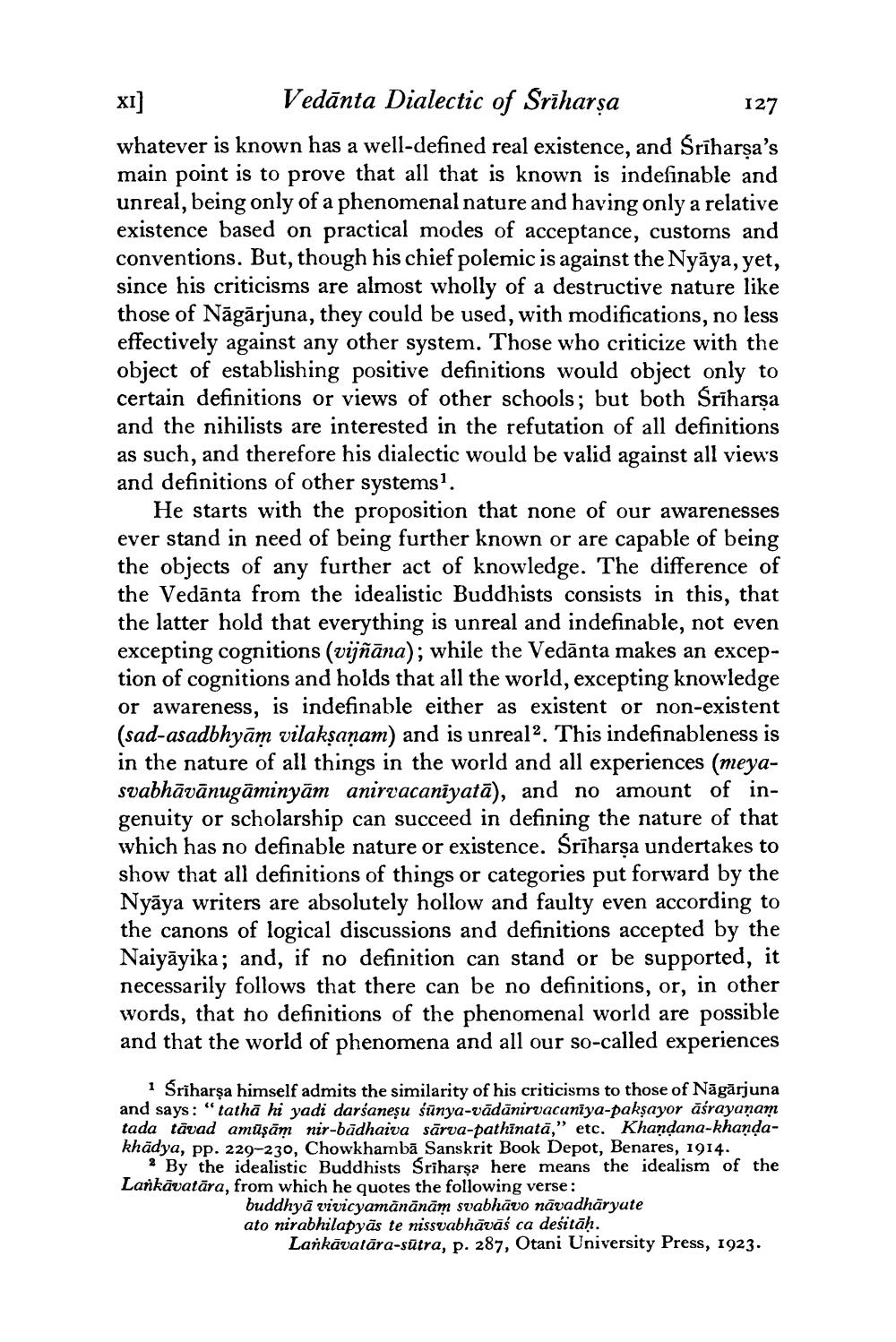________________
XI]
Vedānta Dialectic of Sriharsa
127 whatever is known has a well-defined real existence, and Śrīharşa's main point is to prove that all that is known is indefinable and unreal, being only of a phenomenal nature and having only a relative existence based on practical modes of acceptance, customs and conventions. But, though his chief polemic is against the Nyāya, yet, since his criticisms are almost wholly of a destructive nature like those of Nāgārjuna, they could be used, with modifications, no less effectively against any other system. Those who criticize with the object of establishing positive definitions would object only to certain definitions or views of other schools; but both Sriharsa and the nihilists are interested in the refutation of all definitions as such, and therefore his dialectic would be valid against all views and definitions of other systems.
He starts with the proposition that none of our awarenesses ever stand in need of being further known or are capable of being the objects of any further act of knowledge. The difference of the Vedānta from the idealistic Buddhists consists in this, that the latter hold that everything is unreal and indefinable, not even excepting cognitions (vijñāna); while the Vedānta makes an exception of cognitions and holds that all the world, excepting knowledge or awareness, is indefinable either as existent or non-existent (sad-asadbhyām vilaksanam) and is unreal. This indefinableness is in the nature of all things in the world and all experiences (meyasvabhāvānugāminyām anirvacanīyatā), and no amount of ingenuity or scholarship can succeed in defining the nature of that which has no definable nature or existence. Sriharsa undertakes to show that all definitions of things or categories put forward by the Nyāya writers are absolutely hollow and faulty even according to the canons of logical discussions and definitions accepted by the Naiyāyika; and, if no definition can stand or be supported, it necessarily follows that there can be no definitions, or, in other words, that no definitions of the phenomenal world are possible and that the world of phenomena and all our so-called experiences
1 Sriharşa himself admits the similarity of his criticisms to those of Nāgārjuna and says: "tathā hi yadi darśanesu sünya-vādānirvacaniya-pakşayor āśrayanam tada tävad amūşām nir-bādhaiva sārva-pathinatā," etc. Khandana-khandakhadya, pp. 229-230, Chowkhamba Sanskrit Book Depot, Benares, 1914.
2 By the idealistic Buddhists Sriharsa here means the idealism of the Lankāvatāra, from which he quotes the following verse:
buddhyā vivicyamānānām svabhāvo nāvadhāryate ato nirabhilapyās te nissvabhāvāś ca desitāḥ.
Lankāvatāra-sūtra, p. 287, Otani University Press, 1923.




